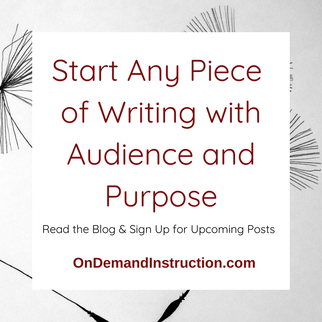
Audience and purpose go hand in hand for writers. Before we write, we spend a little time considering our intended audience, which is the person or people we hope will read our writing. Establishing the audience for a piece can help writers stay on track and create a more valuable piece of writing. A little time spent planning can save a lot of time revising.
As a starting point, writers create for themselves. Writers are their own audience. We engage in certain types of writing (e.g., reflective work, diary and journal, and stream of consciousness memory writing) solely for ourselves. When we write solely for ourselves, we write with the intention that no one else will read what we write. In such cases, we tend to be free and open about what we create, because we don’t fear the judgment of others or worry about the outcome of what could happen because we're the only ones who will see that writing.
When we branch out, we create work for a small audience. We write letters, emails, and personal stories intending them to be read by one person, or at most, a small group of people. For example, we might write a letter to Aunt Clara with the idea that she will be the only person to read it, so we include only information that would interest Aunt Clara and we address her personally in the piece. Of course, we know that Aunt Clara is chatty and loves to tell stories at her club, so we might keep that in mind when choosing which details to include.
Additionally, we may consider writing for a small, controlled group. I work with writers who are composing their personal stories to preserve within their families. They collect the stories of their lifetimes to save and pass to their close friends and family members, knowing that those stories may be passed on for generations. When writing personal stories, we might address our audience specifically or we might use a generalized second person point of view by using “you” to reference our readers. Subscribe to the Writer's ListGet the writer's blog delivered to your email. Attain an effortless writing process with tips and tricks that support your love of writing. Success! Now check your email to confirm your subscription. 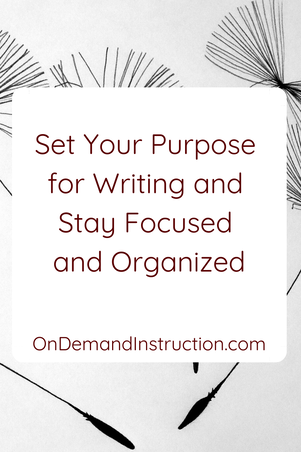
And of course, we have the broad, general audience. This is where our writing could be read by anyone and everyone who comes across it. When we write for a broad audience, we might be writing a blog, an article, a novel or short story, or a book for publication. Our hope is that the broad audience loves our writing and buys our books, though that audience can also be more critical because they are separated from us personally. Believe it or not, our friends and family tend to be our biggest supporters when we are creating. They know us and our journeys, and understand what it took for us to put words on the page.
Our intended audience includes the person or people we believe will read our writing, but things don’t always work out that way. The letters that Benjamin Franklin wrote to his son have been compiled into a book and shared for centuries. The letters that author Willa Cather wrote to friends are part of her estate, and F. Scott Fitzgerald’s letters to his daughter giving her advice on life go in and out of publication. So, although we may originally compose writing for a certain audience, the reader can change over time and our writing may end up in the hands of an unintended audience. That could be a broad, general audience of readers who purchase a copy of our collected letters, but it's more likely to be other friends and family, business partners, or community members who come across our writing. For example, historians have used the journals of average people throughout history to piece together events from the past. Our writing can end up helping more people than we originally expect when we dedicate words to the page.
What about Purpose?
The other element that writers may want to consider is purpose. Why are you writing? What drove you to sit down and start the letter, the story, or the book? What outcome do you intend will come of your writing? Do you expect the reader will understand you better, make a change in their life, or develop a skill from reading your writing? When we set a purpose for our writing, we tend to help ourselves. This is because when we have a purpose, it is easier to focus and stay on track. Many writers wander down a bunny trail after beginning a piece that lacks purpose; this may happen with fiction writing more often than with non-fiction. We start out writing about a pirate who wants to settle on land and end up with a gardener who hates to get dirty. It happens to the best of us.
Setting a purpose for writing before putting your first words on the page can help you focus, write in a more organized manner, and meet your goal. If you have no purpose, then any road will get you there, but if you have the purpose to compose a particular piece of writing that meets a particular goal, then establishing that purpose can help get you organized and keep you organized throughout the process.
Of course, the best-laid plans for writing can be easily derailed. If you set a particular audience and purpose for a piece but end up in a different place, it’s OK. Sometimes, a story wants to be told and insists on coming up no matter what we are trying to create. So, if you are on a path but end up racing down a bunny trail, it might be a good thing.
Comments are closed.
|
About the SiteWelcome, Writers! Archives
September 2023
|
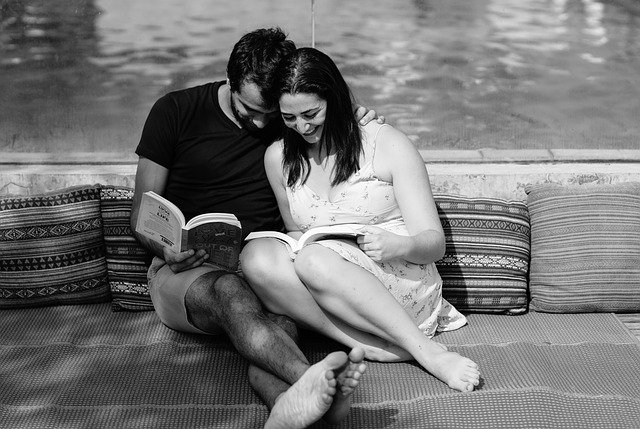

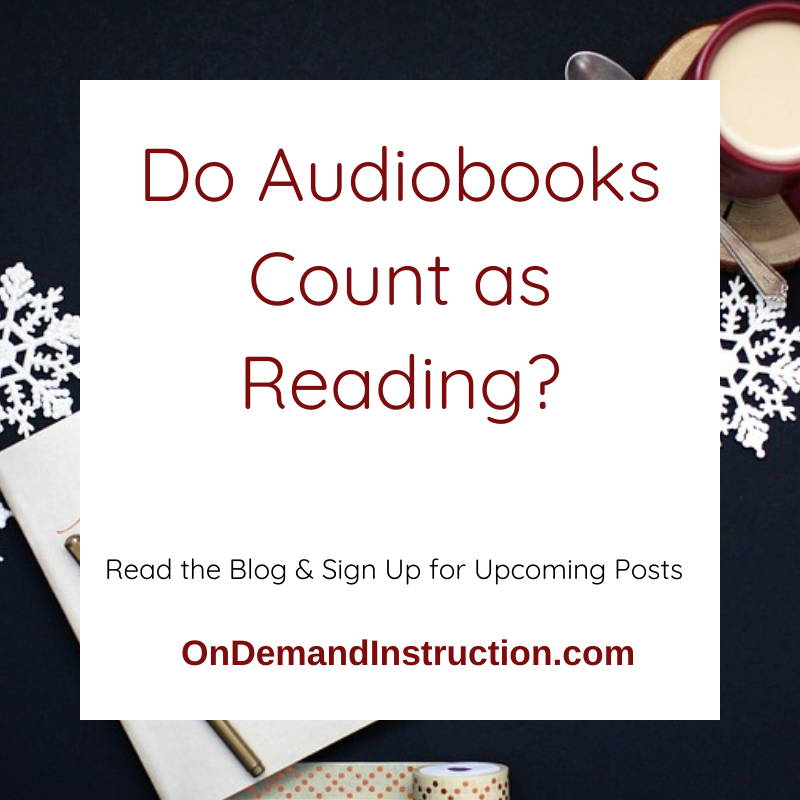
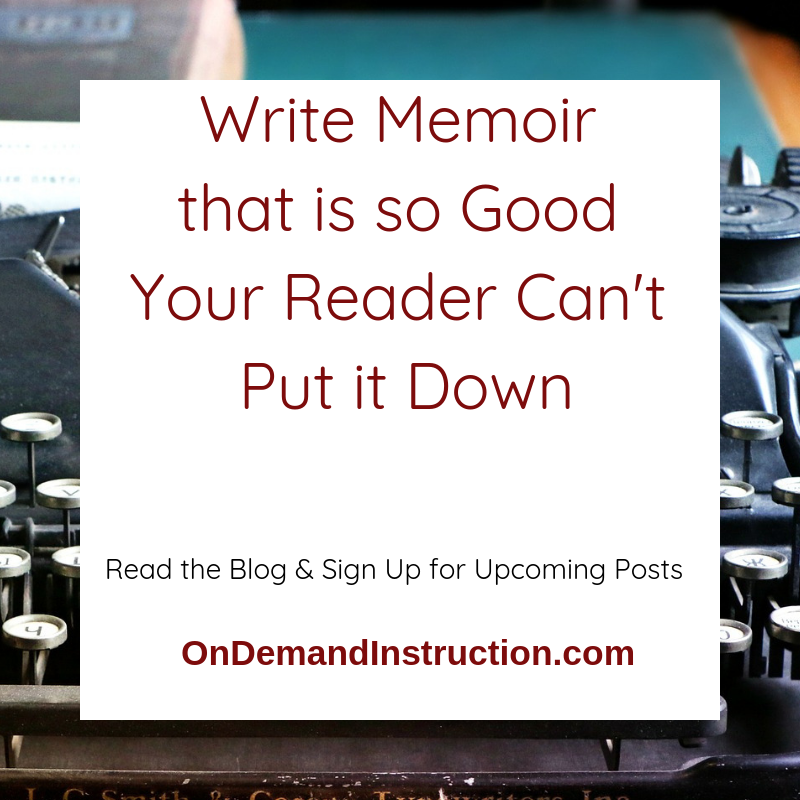
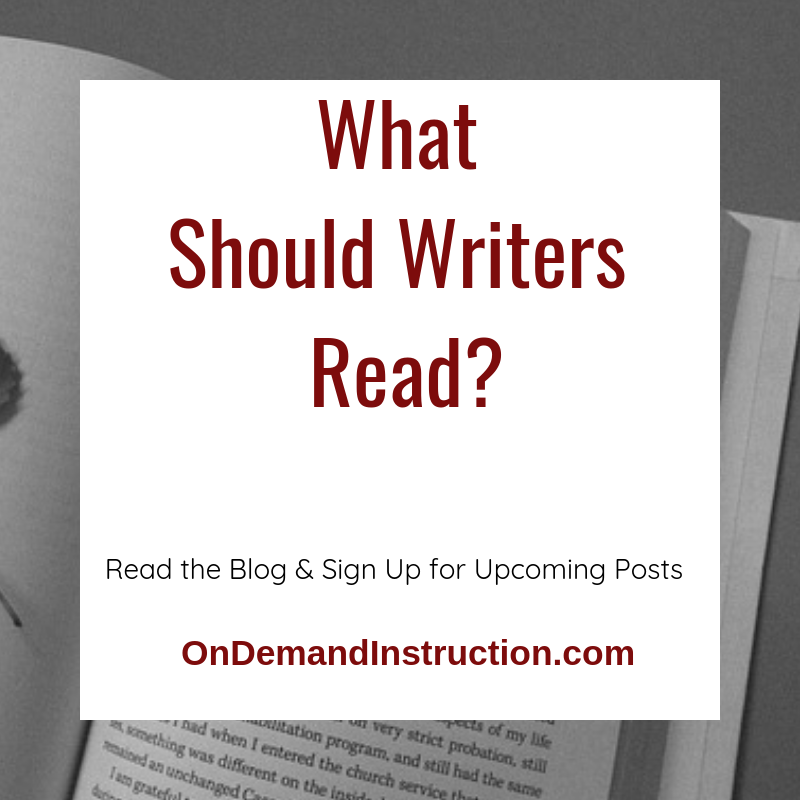
 RSS Feed
RSS Feed